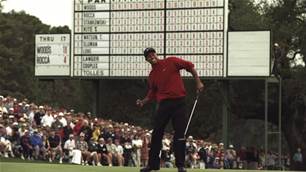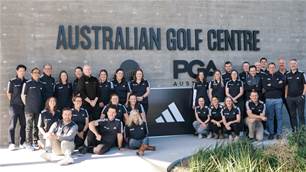A conversation with the "other" scorekeeper of the professional sports world.
A conversation with the "other" scorekeeper of the professional sports world.

Sport’s power to endorse has long been understood. This came home to Paul Smith when he went to a sumo match in Tokyo. “Before they get in and wrestle, each guy has his sponsors. They parade around with the posts,” Smith says. “The sign of the success of the wrestler is how many people get up and walk around with the signs. The grand champions are up there with 50 blokes. The guys just reaching those ranks have two. This has been going on for centuries.”
This has resonance for Smith, who is the head of the sports marketing research firm Repucom. Since the company’s founding in Sydney a decade ago, Repucom has established its reputation for evaluating the effectiveness of sports sponsorships, and has expanded globally to become the leader in the field. As Smith explains, economic downturn presented a grand opportunity. “I always reflect on a conversation
I had when we first opened in the US in 2007 with a very big rights-holder, who said, ‘We love your stuff, we get it, we think it’s great, but we don’t need it because we’re the duh-duh-duh. And out on Park Avenue, there’s 20 major brands waiting to come inside.’
“That league today is one of our major clients. The global financial crisis was the greatest thing to ever happen to us ... The caution that brands demonstrate around making investments now, they’re very careful. And equally, the rights-holders have a sense of obligation.”
Repucom’s work paints an intriguing picture of this current spend-more-to-get-more sponsorship landscape. One recent study in Britain found that Emirates’ sponsorship of Arsenal in the Premier League was the most recognised in the country. A key finding was the dual nature of the deal – the Dubai-based airline has both shirt and stadium naming rights, a model also employed by Manchester City and Etihad. Even Stoke City, which had a long-running dual deal with insurers Britannia, recorded the fourth-highest level of recognition for its stadium naming rights.
Smith says the cost of sponsorship wasn’t going to go down, particularly as sports rights continued to mushroom. “The value definition for the brands now is how they leverage their involvement: beyond exposure, beyond the entire integration into their marketing strategy. The brands that will look at sponsorship and say it’s cheap are the ones that go, ‘Okay, we’re going to make this work at multiple catchpoints. We’re not going to just rely on brand exposure on television.’”
With Repucom’s presence across multiple markets, Smith has an interesting vantage point on what he calls the arms race for big clubs touting their global reach, the Man Uniteds and New York Yankees of the world. “We have a pretty good handle on fan base sizes. And what that scale of fan base does in terms of driving direct revenue to the team, it doesn’t move the needle substantially. But it does increase the potency of their story when they talk to the development of other media. Man U have perfected the art of having global sponsorship: they’ll have an official Arabic bank and an Asian bank.”
By contrast, many US-based franchises operate under restrictions limited to their home market. “The Miami Heat can’t have an official bank in China – all those rights are owned by the NBA. This is where it’s not a fair fight. Of course, the whole premise of leagues in the US is level playing field and income sharing – the league is the firm. It’s an interesting dynamic.”
Smith notes with interest that the NBA is considering shirt sponsors for its teams, something of a break with the traditional clean-skin presentation of US sports leagues. It raises the question of brand overexposure, and if fans will eventually turn off in a flood of marketing messages. In a sign of the age, tech giant Intel just announced a deal to run its logo on the inside of Barcelona’s shirts (“Intel inside”, get it?), hopefully to be seen during upturned-shirt goal celebrations.
Smith concedes there is a point of diminishing returns. “We did a recent study with an EPL club, a very traditional club – not Man U, I’ll cut that off at the pass – that was looking at selling naming rights to their stadium, which had a traditional name.
“The research came back: the fans said if you make the team better, we don’t mind doing it. Make the team better. But if you don’t make the team better, then we don’t want it. Leave it as it is. It’s a very telling point about the commercialisation of the sports environment.”
- Photo: Getty Images
Related Articles

Tiger and Nike part ways after 27-year partnership

Morri: Slumbers is a “voice of reason and wisdom”













